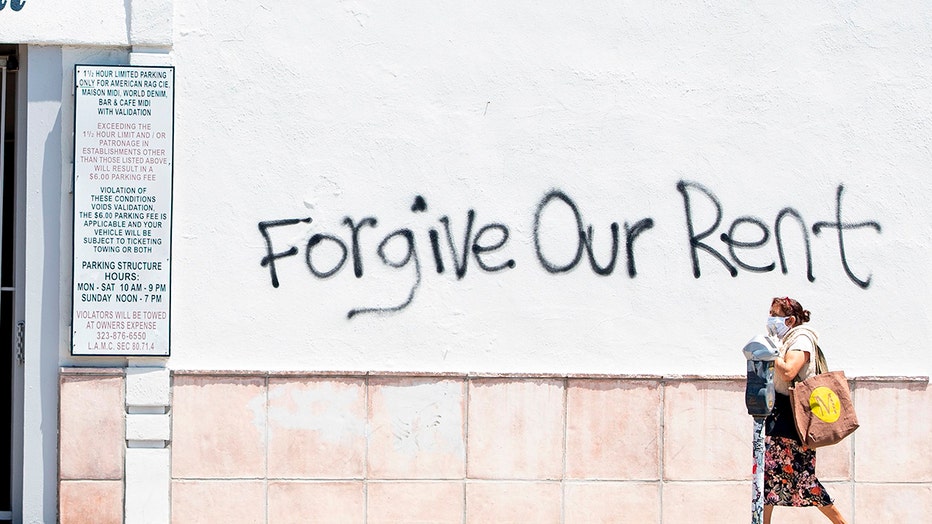New tool allows renters to check if they're protected by fed's eviction moratorium
LOS ANGELES - Tenants worried about paying rent during the coronavirus crisis can use a new tool unveiled earlier this week by the Federal Housing Finance Agency, which oversees mortgage giants Fannie Mae and Freddie Mac, to check whether they are protected under a federal eviction moratorium.
The CARES Act, the massive $2.2 trillion economic-relief package passed at the end of March, halted evictions of renters at properties secured by Freddie Mac or Fannie Mae, as well as tenants living in federally assisted housing.
“Today's tool protects renters and empowers them to find out if they live in a multifamily property covered by the eviction moratorium," FHFA Director Mark Calabria said in a statement. “Landlords with Enterprise-backed mortgages cannot evict tenants for failing to pay their rent if they are affected by COVID-19. Renters who can pay their rent should."
RELATED: CoronavirusNOW.com, FOX launches national hub for COVID-19 news and updates
About 28 percent of rental units are properties financed by federally backed mortgages, according to recent Urban Institute research. Properties that are federally subsidized through the Low-Income Housing Tax Credit program or other federal assistance programs are also protected from evictions.
Fannie Mae's lookup tool can be found here and Freddie Mac's tool can be found here.
A recent survey found the virus outbreak has affected the income of nearly two-thirds of all renters. Just 52 percent of respondents expected to be able to pay their full rent in May, compared to 69 percent who indicated they paid April’s rent in full, according to Grace Hill, a company that develops technology for the property management industry.

FILE - A woman wearing a mask walks past a wall bearing a graffiti asking for rent forgiveness on La Brea Ave on National May Day amid the Covid-19 pandemic, May 1, 2020, in Los Angeles, California.
The crisis has walloped Americans financially: In the six weeks since widespread shutdowns started, more than 30 million workers have filed for first-time unemployment benefits, a stunning sign of the economic calamity inflicted by the virus. Unemployment at this scale hasn’t been recorded since the Great Depression, when the jobless rate peaked at 25 percent.
RELATED: Looking for work? These companies are hiring amid the coronavirus pandemic
To dull the economic pain, some city and state governments — California, Pennsylvania and New York among them — have put moratoriums on evictions of both residential and commercial tenants. Meanwhile, several banks, including JPMorgan Chase and Wells Fargo, have agreed to halt foreclosures and temporarily waive mortgage payments for borrowers whose finances have been impacted by the outbreak.
But advocates worry about what will happen to those who were unable to pay rent once courts reopen.
Rent strikes were planned in New York City, Philadelphia, Chicago and California beginning May 1. Organizers of a New York strike say they hope it prods lawmakers into offering more financial assistance during the crisis, including canceling rent for four months and offering tenants the right to renew their lease without rent increases.

